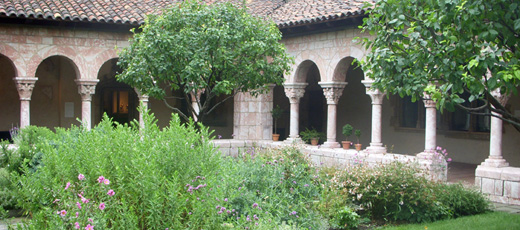Daily Office:
Monday, 27 September 2010
¶ At The Economist, a knuckle-rapping for Constitution-worshiping Tea Partiers, who seem unaware of what manner of men wrote the document.
¶ In a lovely piece about James Franco that is really about staying true to yourself while being dazzled by somebody famous, Jeff Price acknowledges the scorn that his friends heap upon him when he tells them his story about not accepting Mr Franco’s invitation to get a cup of coffee for the good reason that celebrities are best appreciated at a distance. (The Millions)
¶ “Structural Unemployment” is the new “personal responsibility” — crocodile tears from the Money Party. It’s not that there aren’t any jobs, they say, it’s just that today’s workers lack the proper training to fill them. Such eyewash hardly deserves rebuttal, but it gets it anyway from Yves Smith, Robert Reich, and Paul Krugman.
¶ At Gene Expression, Razib Khan considers a recent paper arguing that ancient cities fostered the natural selection of an anti-tubercular gene. His thoughts about the populations of ancient cities leads to a different, and very interesting conclusion.
¶ New Yorker writer Susan Orlean (author of The Orchid Thief) notes that the good advice that she used to offer to aspiring writers has “passed its sell-by date.”
¶ In the Times, Thanassis Cambanis writes about the potential for water wars up and down the Nile.
¶ Now that everyone has had a chance to read it, Freedom is much in the Net news. This week, we’re going to collect a variety of responses to the novel (which we loved), beginning with Bookslut’s Jessa Crispin’s principled refusal to read it. (Smart Set; via 3 Quarks Daily)
¶ We can’t decide. Does Curtis Eichelberger’s Bloomberg story, “Ivy League Football `Mafia’ Gives Wall Street a Talent Pipeline,” tell us that Ivy League colleges are recruiting athletes with promises of post-graduate positions on Wall Street? You decide. (via Dealbreaker)
¶ Ivy Style readers remember the clothes they wore in college, way back in the middle of the Twentieth Century — and, in many cases, still wear, as the Editor can attest)

